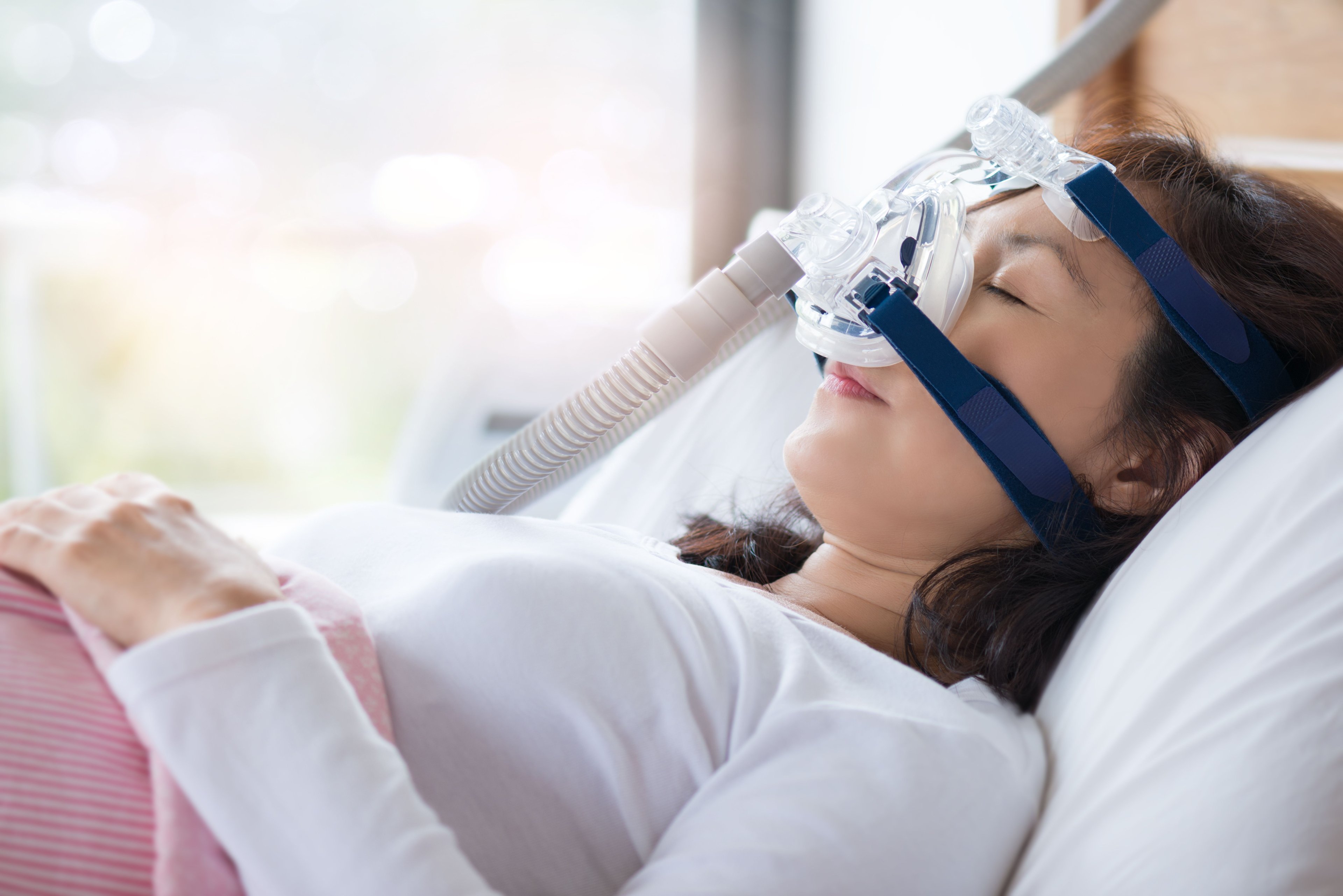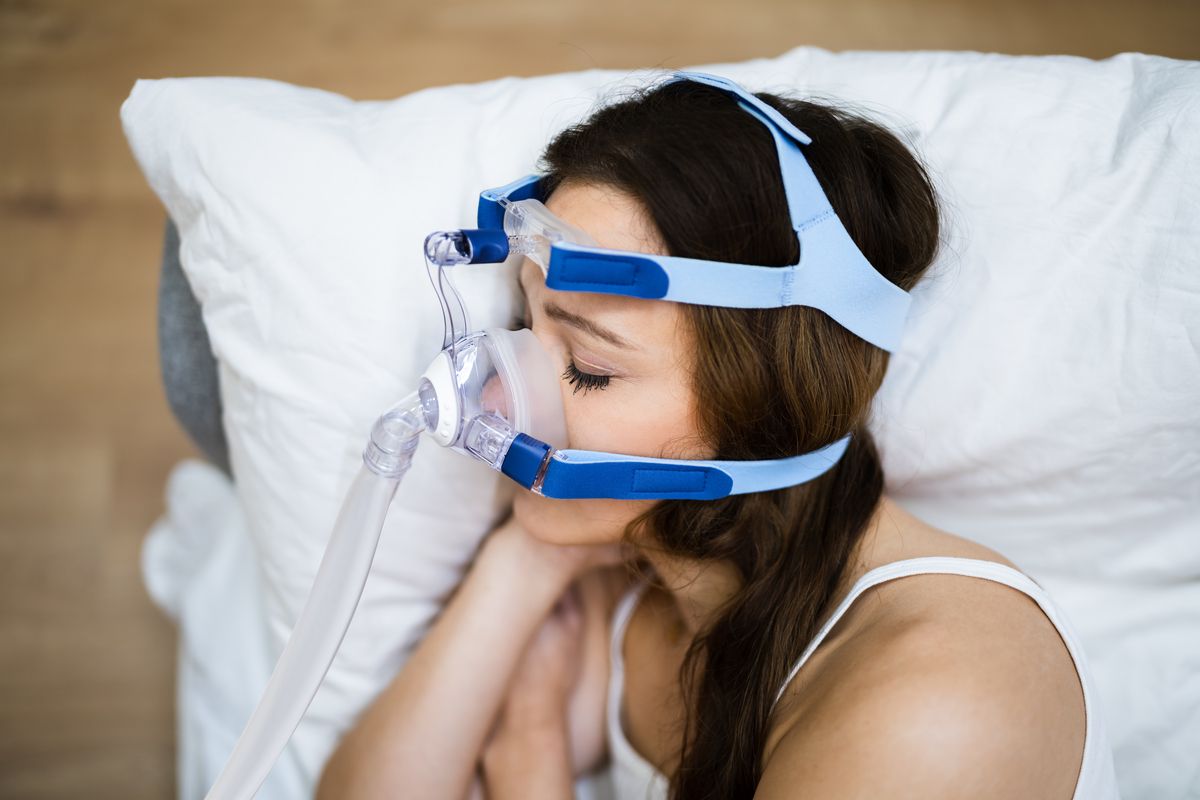As a nation, we're getting older -- and for many of us, weight gain comes with age. These trends can help explain the impressive growth of ResMed (RMD 1.15%), a manufacturer of continuous positive airway pressure (CPAP) equipment used to treat sleep apnea.
Research by the National Center on Sleep Disorders shows that sleep-disordered breathing affects nearly 15% of the population, and more than two decades of research by the Wisconsin Sleep Cohort Study produced the conclusion that incidences of sleep apnea will likely rise as our population ages and because of the obesity epidemic.
ResMed has seen a 60% jump in its stock price over the past 52 weeks and has enjoyed adjusted EPS growth of 9% over the past five fiscal years. While other medical supply companies are seeing strong headwinds because of the COVID-19 pandemic, ResMed's shares have continued to climb after a momentary dip in late March. Here are a few reasons why.

Image Source: Getty Images.
ResMed also manufactures respirators and oxygen masks
Respirators and hospital non-vented full face masks (used with ventilators) have been in great demand to treat COVID-19 patients. Before the pandemic, ResMed was already producing respirators to treat chronic obstructive pulmonary disease (COPD) and other breathing disorders, and those respirators are now being used to help patients recovering from COVID-19.
Earlier this month, the U.S. Department of Health and Human Services (HHS) announced it was awarding contracts to produce 130,000 ventilators under the Defense Production Act. ResMed's contract with HHS, worth $32 million, has the company producing 2,550 ventilators by July 13, including 400 by May 4 and 1,150 by June 1.
"We are supplying Astral ventilators, which can do invasive and noninvasive ventilation in the hospital or in the home," ResMed spokesman Jayme Rubinstein told the San Diego Union-Tribune. "We are continuing to talk with state governments in the U.S., and with other countries, about what their needs are and how we can fulfill them."
The only thing slowing ResMed from producing more respirators is complexity: Its machines are made up of roughly 500 components, and their manufacturers haven't been able to keep up with supply. However, ResMed and Tesla are now working together -- with the latter supplying lithium-ion batteries -- and ResMed has said it is seeking help from various defense industry companies to get the parts it needs. ResMed CEO Mick Farrell said he's looking to triple production of his company's higher-level ventilators.
ResMed has been expanding its software-as-a-service business
The rise of hospital costs has led to an increased reliance on out-of-hospital healthcare. Toward that end, ResMed has aggressively grown its software-as-a-service (SaaS) business through the acquisitions of the software systems of post-acute care providers Brightree and MatrixCare.
"We believe that the future of healthcare is outside the hospital," Farrell said on the company's second-quarter earnings call Jan. 30. "That's where ResMed competes today and that's where we are winning today. We have the right elements in place to achieve our strategy and to drive financial success as we provide market-leading value to customers."
ResMed's second-quarter SaaS revenue was up 37% over the same quarter a year ago and was responsible for 12% of the company's total, according to its quarterly numbers.
And ResMed's connection to its customers doesn't end when it sells a COPD device. The company resupplies the masks, filters, and air hoses that attach to the device, and it uses software to keep patents connected. One app, MyAir, allows sleep apnea patients to keep track of their sleep data on their phones. Another app, AirView, is a cloud-based patient management system that allows doctors to access patient data.
ResMed is positioned to respond well to a downturn
ResMed plans to announce third-quarter earnings April 30. It will be interesting to see how much the company has been affected in the short term by the coronavirus pandemic and accompanying shutdown. Given that people are not currently going to the doctor -- or anywhere else, for that matter -- it's likely that fewer new sleep apnea patients will be diagnosed. However, that's only temporary, and ResMed's recent contracts for respirators should help it smooth out the rough patch. Up 34% from its March 23 low near $109, the stock remains an intriguing buy in the healthcare space. It will look especially appealing if it slips following third-quarter earnings reports.






